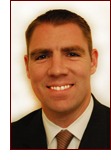Labor Report
Wage and Hour Investigations
The Wage and Hour Division of the United States Department of Labor (WHD) has nearly doubled its workforce in the last two years along with a $48 million increase in budget since 2009. With this expansion, the WHD is focusing on specific industries to create industry-wide change where violations are common.
Because the investigative process is relatively unknown in the private sector, investigations cause significant anxiety and can be disruptive to operations and employee morale. Understanding the investigative process will help reduce anxiety and reduce liability if employers proactively fix problems.
Overview
The WHD enforces several laws, including the Fair Labor Standards Act (FLSA), the Family and Medical Leave Act, and the Davis-Bacon Act. The WHD enforces these laws by conducting investigations based on complaints or by initiating the investigations itself.
When an employer is being investigated, several general guidelines should be followed:
- Remain calm and amicable.
Investigators who are treated well tend toward greater understanding and possible flexibility - The law provides employers 72 hours to gather records.
This is particularly important when an investigator shows up unannounced. Employers should not be afraid to ask for time to gather records - Employers have a right to legal counsel.
This may be desired if an employer is concerned about potential liability, disclosure of proprietary information, etc. - Employers may inform their employees of the ensuing investigation, but generally should refrain from telling employees what to say (with the exception of management as described below).
Initial conference
Investigations begin when an investigator sets up an appointment with an owner or upper-level manager, or comes to the business unannounced. The investigator will specifically inquire about the nature of the business, its size, and gross revenues to verify that the FLSA applies. The investigator also will ask about payment methods, exemptions, employees and other relevant information. The initial conference usually does not last more than one or two hours.
Records review
After the initial conference, the investigator will review and copy payroll reports, employee information, employment contracts and additional records that may be needed to substantiate employer-claimed exemptions.
Wise employers know that accurate records are important, and this is particularly true when dealing with a WHD investigation. Records serve as a means to both substantiate compliance and defend against allegations of violations. Because of their central importance, employers should implement policies that ensure that records are accurate (e.g., requiring employees to sign time cards, initialing changes to time sheets, etc.).
Employee interviews
The investigator also will conduct employee interviews that include questions about employee job duties, employee hours, employee pay, child labor and other relevant items important to the investigation and compliant. Interviews are particularly important, since they can uncover violations undiscovered in the initial conference or records review.
Employers also should know that most companies have at least one employee who wants to talk about anything and everything related to their employment, whether relevant or not. Investigators will ask pointed questions to identify other possible violations or areas of concern, because there is not fear that the employee has been coached or that the employee will report back to the employer.
The WHD will insist that most interviews be conducted privately as it tends to avoid possible intimidation by the employer. However, an employer, or its representative, is permitted to be present when the investigator is interviewing members of upper-level management, because these employees can bind the company. Wise employers will always be present or have their representatives present in these interviews.
Back wages
After reviewing records and interviewing employees, the investigator’s next step is to calculate back wages. The investigator may perform the calculations, or ask the employer to do so. Employers should always inform the investigator of any vacation time, holidays or other days employees did not work. Non-working days are not hours worked under the FLSA, and, therefore, may reduce back wage liability.
Separately, the WHD and Circuit Courts differ in their interpretation of the FLSA from time to time.?? While the WHD is the enforcement agency, it is restricted to enforcing the law as the courts have interpreted it.?? Therefore, Circuit Court rulings prevail where the national WHD enforcement policy does not comply with the Circuit Court rulings.?? Where Circuit Courts and the WHD differ, employers should consult with an attorney to see if back wages may be reduced because of friendlier Circuit Court Rulings.
Final conference
At the end of the investigation, an investigator will meet with management and explain what violations were found. The investigator will invite the employer to come into compliance. If the employer agrees to comply, the investigator will explain the back wages, inform the employer whether additional money penalties may be applicable (“Civil Money Penalties”), and provide instructions for payment of back wages. In certain limited circumstances, employers may qualify for a payment plan.
Management review
If the employer refuses to come into compliance, or disagrees with the investigator’s findings on exemptions, back wages or other issues, the case is referred to the investigator’s manager. The manager reviews the file to verify its accuracy and findings. In limited circumstances, the manager may negotiate the amount of back wages due. If the employer continues to disagree with the findings, then the case may be referred for potential litigation, or the employees will be informed of their right to sue under the FLSA. This ends the investigation.
Conclusion
The WHDs focus on industries with a history of regular violations should be of growing concern to the construction industry. This new focus, coupled with the increased workforce and increased budget, will guarantee an increased number of investigations in the construction industry. Employers should actively identify problem areas, fix those problems, and, if needed, hire legal counsel that has experience with these laws and WHD investigations.
